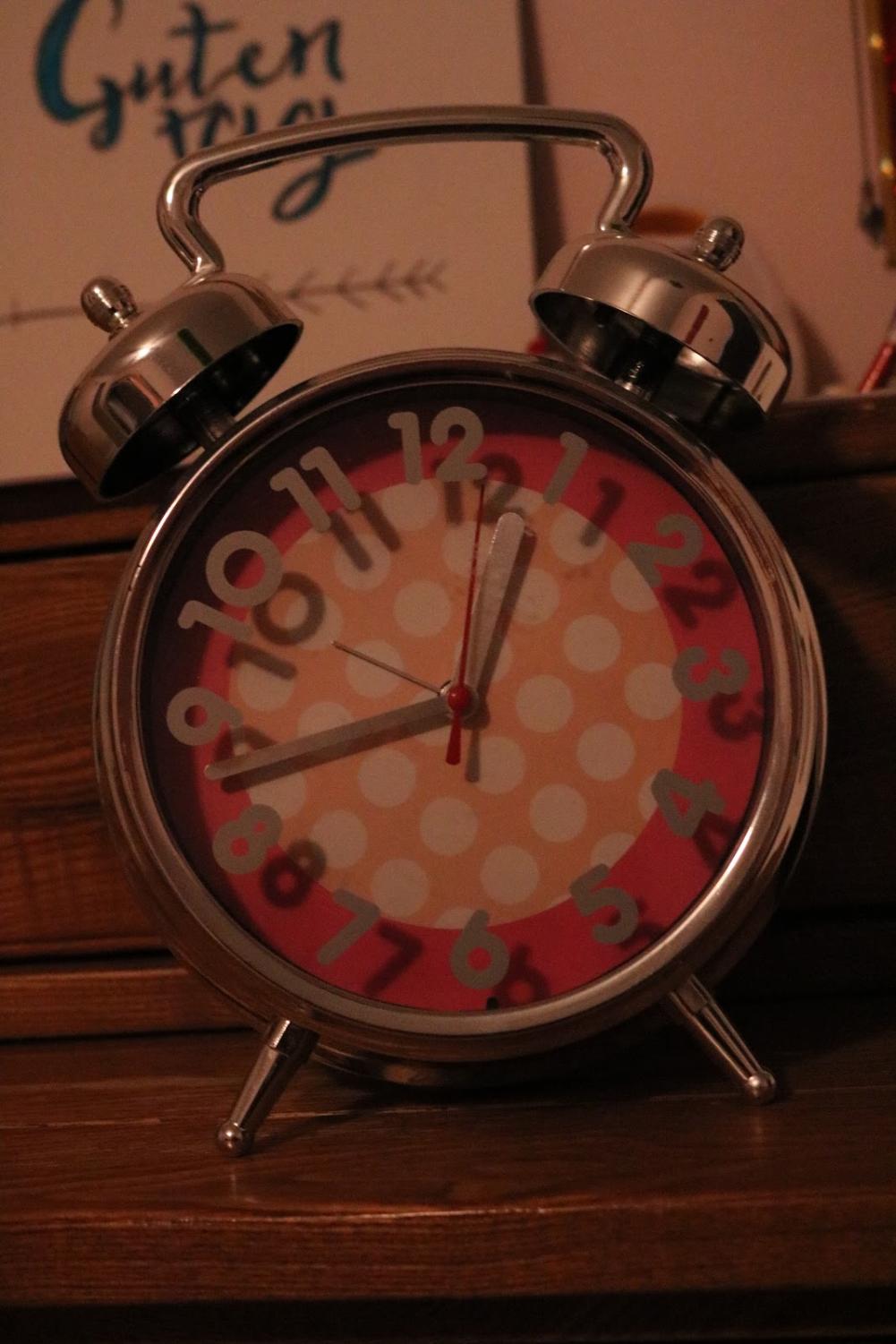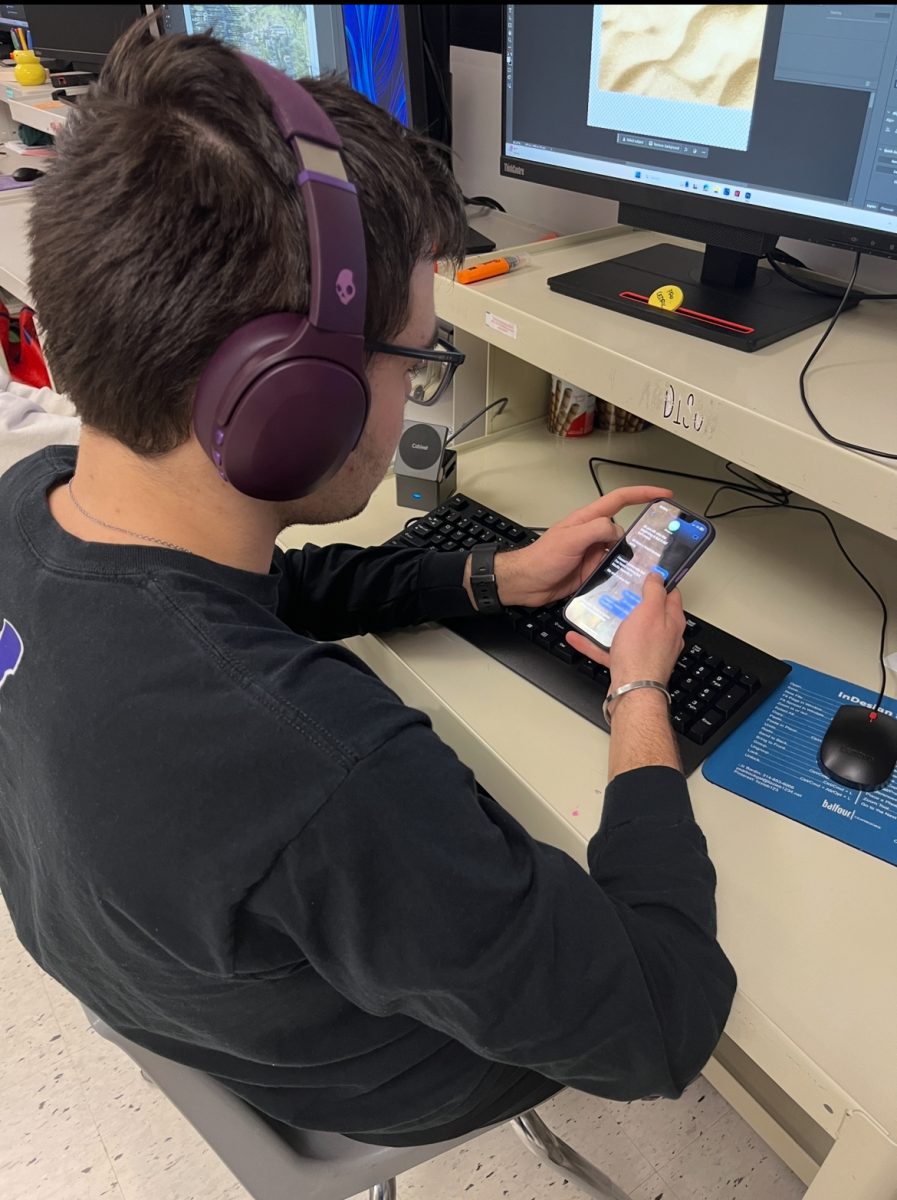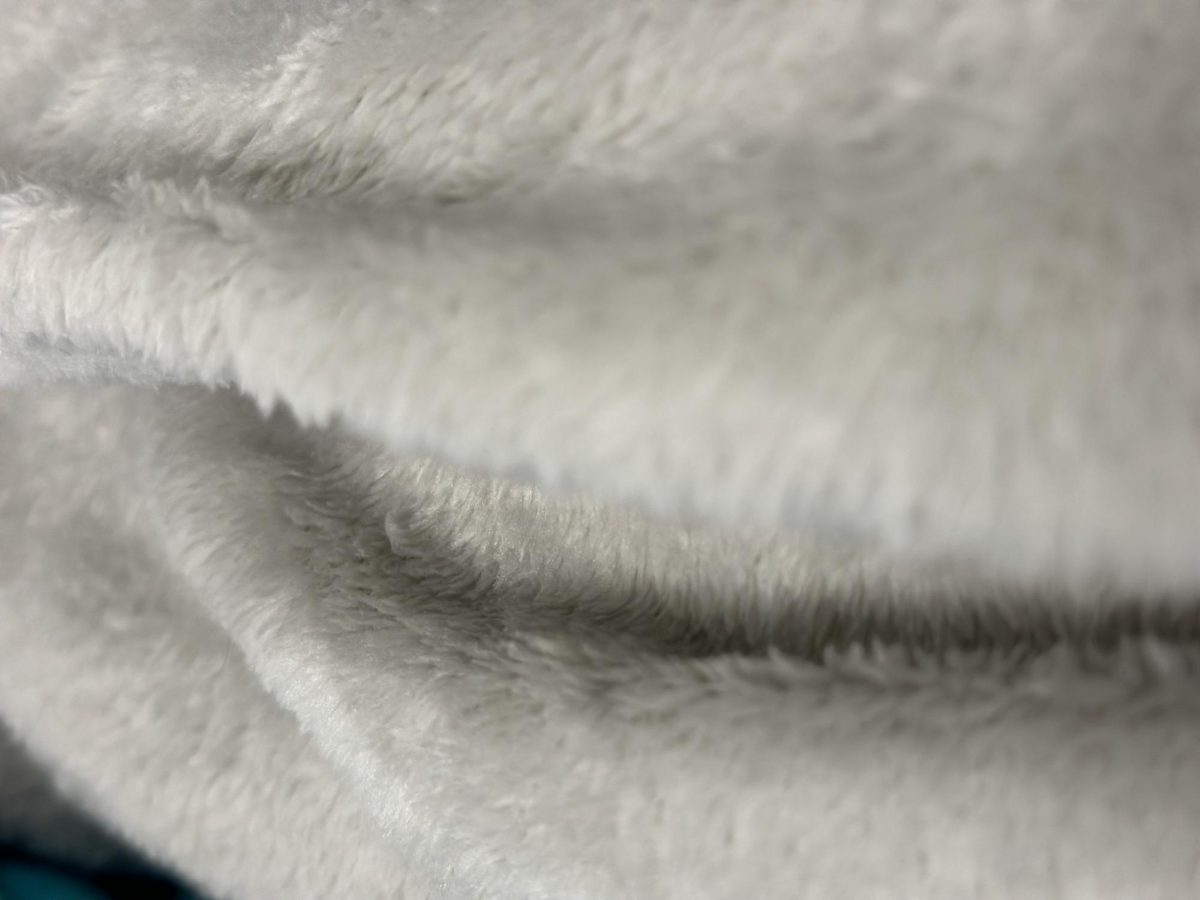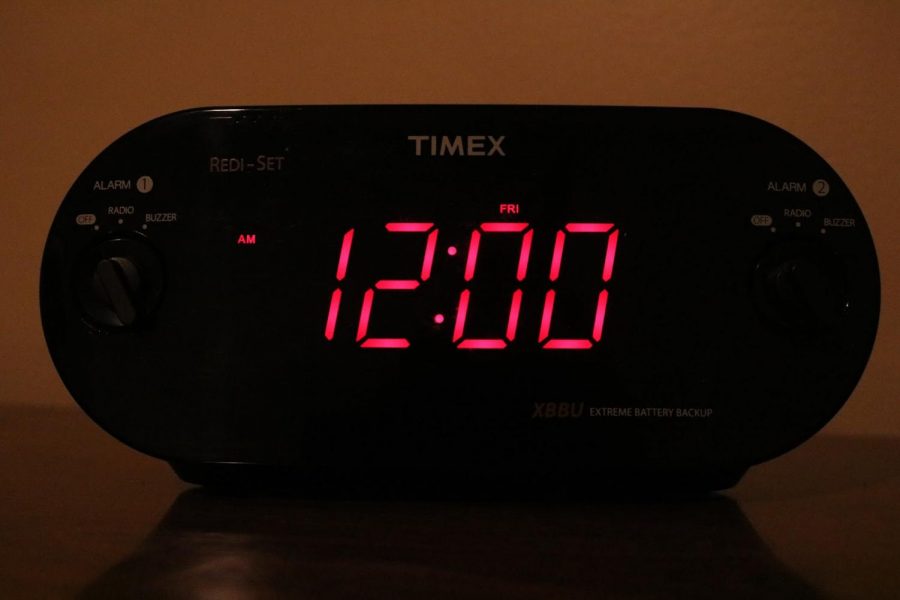To Sleep Or Not To Sleep
How to sleep soundly
An alarm clock that displays the bedtime of most students.
Sleeping is one of the most important parts of the day. It helps people run through the rest of their day properly. It may be difficult to get good sleep, but even changing little things in their daily routine can help people get better sleep.
“A good night’s sleep is just as important as regular exercise and a healthy diet,” certified nutritionist Rudy Mawer said, according to healthline.com. “Research shows that poor sleep has immediate negative effects on your hormones, exercise performance and brain function.”
One of the first steps is to not take naps during the day. Taking naps during the day may be great in that moment, but it can mess up one’s sleep schedule.
“Sleeping in the daytime can confuse your internal clock, meaning that you may struggle to sleep at night,” Mawer said, according to healthline.com. “In fact, in one study, participants ended up being sleepier during the day after taking daytime naps.”
Stop all intake of caffeine six hours before going to sleep. Coffee may help one wake up in the morning, but it does not have the same effect later in the day.
“When consumed late in the day, coffee stimulates your nervous system and may stop your body from naturally relaxing at night,” Mawer said, according to healthline.com,
Exercise helps people get to sleep, but exercise right before bed should be avoided, seeing as it may cause sleeping problems.
“Vigorous exercise is best, but even light exercise is better than no activity,” according to sleepfoundation.org.
Try to stop drinking fluids two hours before bed. Drinking fluids can increase the chance of waking up to go to the bathroom, which can mess with sleep schedules.
“Although hydration is vital for your health, it is wise to reduce your fluid intake in the late evening,” Mawer said, according to healthline.com.
Taking a warm shower or bath can also help induce a good night’s rest.

“A hot bath 90 minutes before bed improved sleep quality and helped people get more deep sleep,” Mawer said, according to healthline.com. “If you don’t want to [or have time to] take a full bath [or shower] at night, simply bathing your feet in hot water can help you relax and improve sleep.”
Refrain from using electronic devices before bed. Although, if a light is absolutely needed, try using red light, as they are shown to make people calmer right before bed.
“Exposure to light during the day is beneficial, but nighttime light exposure has the opposite effect,” Mawer said, according to healthline.com. “Blue light- which electronic devices like smartphones and computers emit in large amounts- is the worst in this regard.”
It is ideal to have a set sleep and wake up time. Try to go to sleep at the same time every day, including on weekends.
“This helps to regulate your body’s clock and could help you fall asleep and stay asleep for the night,” according to sleepfoundation.org.
If at all possible, do not procrastinate. Do work the day it is received and always be prepared for upcoming tests to help eliminate stress. A good way to sleep is comfortable and stress-free.































